Institutional Best Practices
A) Soft Skill Development: Soft skill development includes communication skills, leadership, teamwork, decision-making, social skills, active skills, public speaking, self-awareness, learning attitude, critical thinking, problem-solving skills etc.
- Communication skills: It is the art of communication and skills that are useful in daily life in jobs and business. To develop communication skills taught through micro-teaching practice lessons and various cultural programs.
- Leadership skill : There is an art and skill of leadership. Students are encouraged to participate in various programmemes, and the responsibility of that programme is given to someone to lead.
- They are taught and given different projects. Through this project, they are divided into different groups, and in each group, five to ten students are preparing that project together.
- The art and skill of finding solutions to the problems that arise in life and getting out of them are developed. If there is a problem, the students are taught how to solve that problem.
- Management Skills : Student teachers are given different roles on teacher day. And how to manage while performing these different roles will be taught. Student teachers get to experience management skills in the internship.
- Creative thinking: Students are taught different arts and skills and how to make different things, like weaving and making different things through different craft paper. Students taught how to make different items from different materials and make durable items from waste.
- Social and Public Speaking : Communication skills are taught to student teachers so that they can acquire communication skills in various social events in society. As students are part of society, they taught how to talk and behave with society and how to talk to society and the public in different programs.
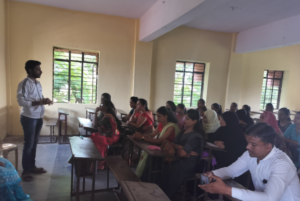
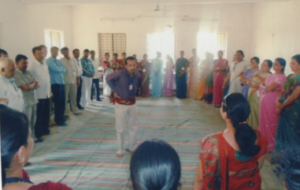
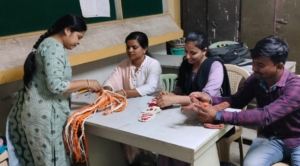
B) The old age home visit : The principal professor and student teachers organized various activities to engage the elderly residents, such as music performances, storytelling sessions, and games. These activities brought smiles to their faces and created a joyful atmosphere in the old age home. During our visit, we also noticed that the old age home had a well-maintained garden where the residents could spend their leisure time. The garden was adorned with colorful flowers and comfortable seating arrangements provided peaceful environment for elderly to relax and enjoy nature. In addition to providing food and entertainment and collecting 150 kg of rice was just the beginning of our college’s best practice to make a positive impact on the lives of the elderly in that area. As we arrived at the location, we were greeted by a sense of anticipation and gratitude from the elderly residents who had been eagerly awaiting our arrival. While the rice was cooking, we engaged in conversations with the elderly individuals, listening attentively to their stories and experiences. Their faces lit up as they shared memories from their youth, imparting wisdom and life lessons that only age can bring. The visit to Matoshri old age home was an eye-opening experience for all of us. It made us realize the importance of taking care of our elders and giving back to society.
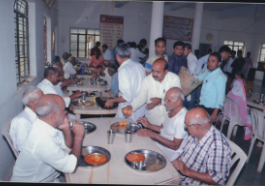

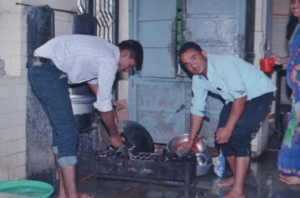
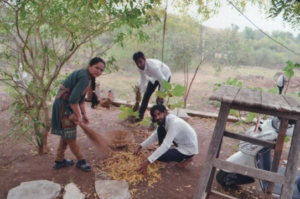
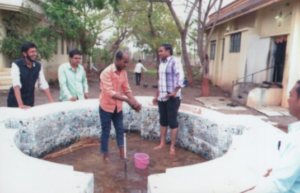

C) Educational stationary distribution: Every year, educational materials are distributed to various educational branches through AYKK Dhule. Educational materials are distributed to the student teachers and various dignitaries, such as the principal and the president of the institution, at the time of the student teacher’s stay. Rajiv Gandhi Secondary School Dhule and Abhay Secondary School Dhule have distributed different educational materials during their stay. 150 uniform notebooks, 150 pens, and other materials were distributed to the students.
